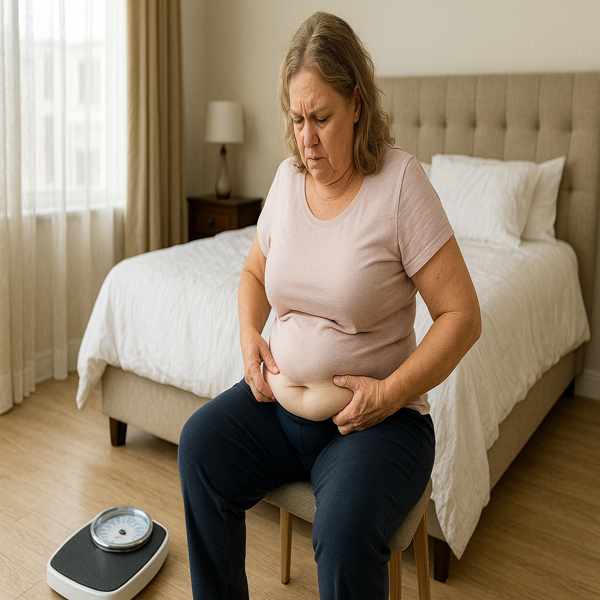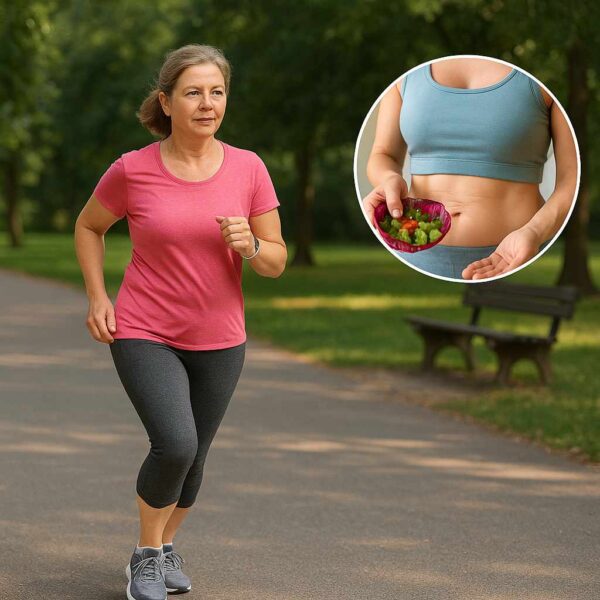Managing Weight Loss After Hysterectomy: Tips and Strategies
Weight loss after hysterectomy can be a challenging journey. A hysterectomy is a surgery where doctors remove a woman’s uterus. Sometimes, they also take out the ovaries. This operation can change how a woman’s body works. Many women notice changes in their weight after this surgery. Some gain weight, while others lose it. It’s important to understand why these changes happen. Knowing what to expect can help you manage your weight better.
Understanding Weight Changes After Hysterectomy
![]()
A hysterectomy can affect a woman’s body in many ways. Hormones play a big part in this. Hormones are chemicals in our bodies that control many things. They can affect your mood, energy levels, and weight. When doctors remove the ovaries during a hysterectomy, hormone levels drop. This can make it hard to keep your weight steady.
Some women may experience rapid weight loss after a hysterectomy. This might sound good, but it’s not always healthy. Losing weight too fast can make you feel weak. It’s important to find a balance. Eating the right foods and exercising can help. You should aim for a steady and healthy weight loss.
- The role of hormones in weight changes.
- Why some women gain or lose weight after surgery.
- The impact of removing ovaries on hormone levels.
- The importance of balanced weight management.
- How rapid weight loss can affect health.
- Strategies for managing weight post-surgery.
Weight loss after hysterectomy keeping ovaries might be different. If the ovaries are left, hormone levels stay more stable. This can make it easier to manage weight. However, every woman’s body reacts differently. It’s important to listen to your body and make changes that suit you.
Many women have shared their weight loss success stories after hysterectomy. Their experiences can offer hope and guidance. Learning from others who have been through the same thing can be very helpful.

Common Challenges in Post-Hysterectomy Weight Loss
![]()
One common challenge is dealing with emotional changes. A hysterectomy can bring about many emotions. Feeling sad or stressed is normal. These feelings can affect your eating habits. Some people eat more when they’re sad or stressed. Others might lose their appetite.
Another challenge is physical activity. After surgery, you need time to recover. During recovery, you may not be able to exercise as much. This can make it harder to lose weight. Once you’re feeling better, slowly start moving again. Walking is a great way to begin.
- Emotional challenges impacting weight.
- The effect of stress and sadness on eating habits.
- Recovery time limiting physical activity.
- Gradually increasing physical movement.
- The role of walking in post-surgery exercise.
- Adjusting to new lifestyle changes.
Diet plays a big role in weight loss after hysterectomy. It’s important to eat healthy foods. Fresh fruits, vegetables, and whole grains are good choices. Drinking plenty of water is also important. Avoid junk food and sugary drinks as much as possible.
Supplements for weight loss after hysterectomy can be helpful too. Talk to your doctor before taking any supplements. They can guide you on what is safe and effective.

Effective Diet Plans for Post-Hysterectomy Weight Loss
![]()
Creating a diet plan for weight loss after hysterectomy is essential. Start by setting realistic goals. Aim to lose one to two pounds per week. This is a healthy rate of weight loss.
Include a variety of foods in your diet. Eat lean proteins like chicken and fish. Include plenty of vegetables and fruits. Whole grains like brown rice and oats are also good choices. These foods provide energy and nutrients.
- Setting achievable weight loss goals.
- Incorporating lean proteins into meals.
- The benefits of vegetables and fruits.
- Choosing whole grains for sustained energy.
- The importance of balanced nutrient intake.
- Monitoring portion sizes and meal frequency.
Plan your meals ahead of time. This helps you make healthier choices. Try to eat at the same times each day. This can help regulate your metabolism. Pay attention to portion sizes. Eating smaller portions can help you lose weight.
Drinking water is important for weight loss. Water helps your body function properly. Try to drink at least eight glasses of water a day. Avoid sugary drinks and sodas.

Exercise Tips for Losing Weight After Hysterectomy
![]()
Exercise is a key part of losing weight after hysterectomy. Start with light activities like walking. Gradually increase your activity level as you feel stronger.
Strength training exercises can also help. These exercises build muscle, which burns more calories. You don’t need heavy weights. Even small hand weights can be effective.
- The benefits of starting with light activities.
- How strength training aids in weight loss.
- Using small weights effectively.
- Increasing activity levels over time.
- Combining cardio and strength exercises.
- Listening to your body and resting when needed.
Cardio exercises are great for burning calories. Activities like swimming, cycling, or dancing can be fun and effective. Choose exercises you enjoy. This makes it easier to stick with them.
Always listen to your body. If you feel pain or discomfort, stop and rest. Pushing too hard can lead to injuries. Remember, consistency is more important than intensity.

Success Stories and Motivational Tips
![]()
Many women have found success in losing weight after a hysterectomy. Their stories can inspire you. One woman lost 20 pounds by walking daily and eating healthier. She felt happier and more energetic.
Another woman focused on her mental health first. She practiced meditation and yoga. This helped reduce her stress. As she felt better emotionally, she found it easier to make healthy choices.
- Inspirational stories of successful weight loss.
- The power of daily walking and healthy eating.
- Focusing on mental health and stress reduction.
- The benefits of meditation and yoga.
- Making gradual lifestyle changes.
- Finding personal motivation and support.
Set small goals for yourself. Celebrate each achievement, no matter how small. This keeps you motivated. Find a support system. Friends, family, or online groups can offer encouragement and advice.
Remember, everyone’s journey is different. What works for someone else might not work for you. Be patient and kind to yourself. Progress takes time.

Conclusion: Achieving Healthy Weight Loss After Surgery
![]()
Losing weight after a hysterectomy can be challenging, but it’s possible. Understanding your body’s changes is the first step. Focus on eating healthy foods and staying active. Set realistic goals and celebrate your progress.
Remember to take care of your emotional health too. Stress and emotions can impact your weight. Find activities that help you relax and feel happy.
- Understanding body changes post-surgery.
- The importance of healthy eating and activity.
- Setting and celebrating realistic goals.
- Caring for emotional well-being.
- Finding relaxation and happiness activities.
- Being patient and persistent in your journey.
Weight loss after hysterectomy can be a significant concern for many women, especially as they navigate the complexities of menopause and the associated weight gain that often follows this surgical procedure. Various factors, such as hormonal imbalances and metabolic changes, can influence weight fluctuations and present a risk for weight-related diseases. Engaging in therapy, both physical and psychological, can be instrumental in managing these changes, providing support, and developing a tailored approach to weight management.
Medical professionals often recommend a combination of lifestyle modifications, including diet and exercise, alongside medicine to address the unique challenges faced post-hysterectomy. Understanding these elements is crucial in mitigating risks and promoting overall health and well-being.
Use all of these keywords: weight loss after hysterectomy, therapy,weight gain,risk,disease,factors,menopause,medicine,medical
Your journey to weight loss success after hysterectomy is unique. With determination and the right strategies, you can achieve your goals. Stay positive and keep moving forward.